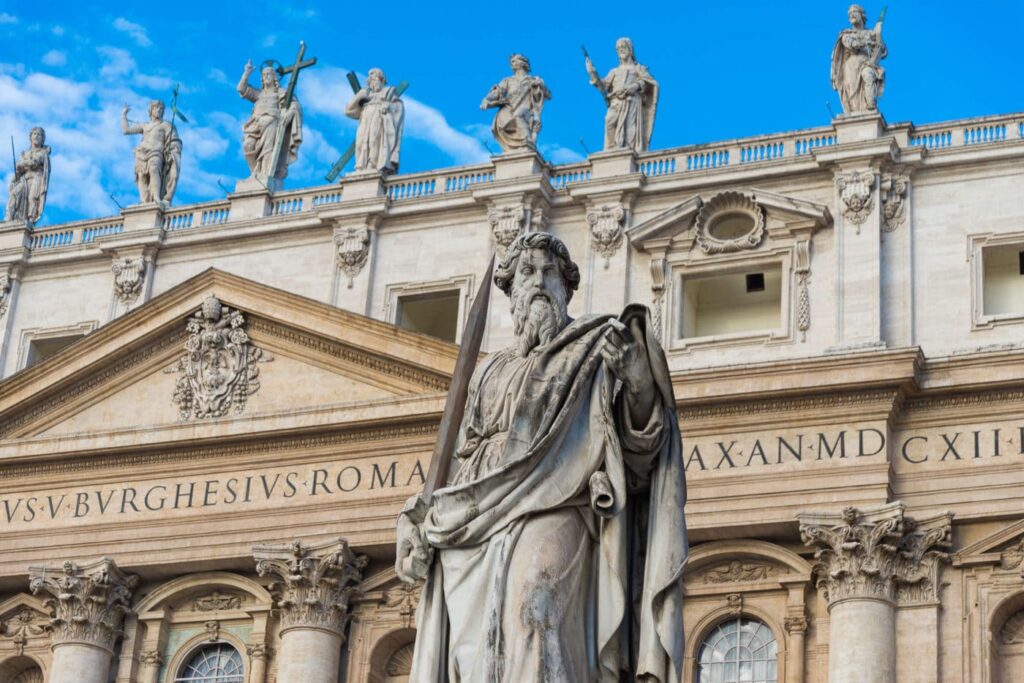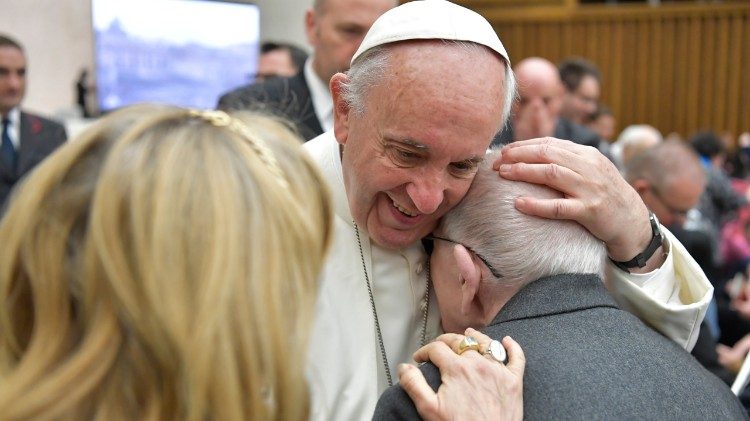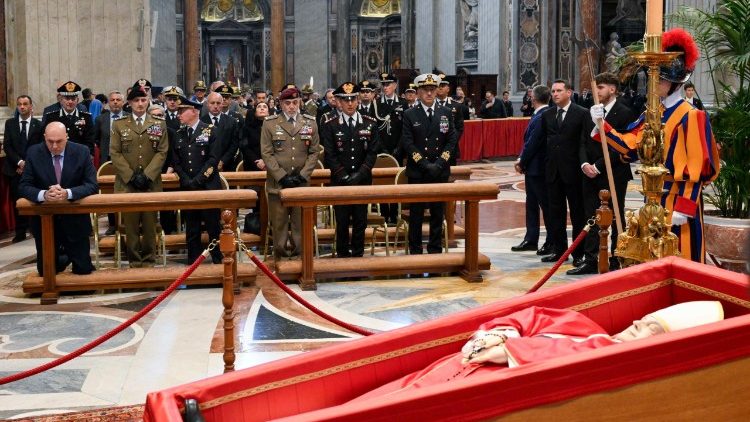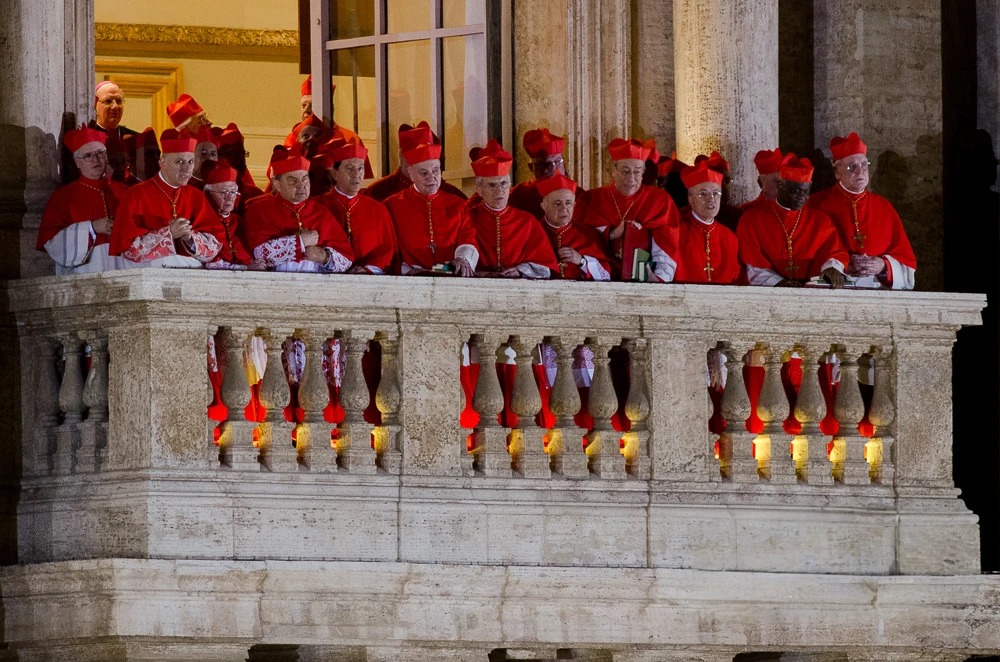Why is the Church “Roman”?
Questions and answers

Why is the Church “Roman”? Father Jairo Yate, priest and investigating judge in the diocese of Ibagué, Colombia, answers this question.
***
Why is the Church “Roman”?
Pope Francis teaches that the Church is missionary, because it received from the apostles the mandate of Our Lord to teach the whole world. But it is also apostolic because it is founded on the succession of the apostles, that is, on those whom the Lord sent (that is, apostle means “sent”) who are the bishops, who teach, sanctify and direct the Church that has been entrusted to them. The “particular” churches, that is, territorial churches, are fully Catholic because of their communion with the Church of Rome which, as St. Ignatius of Antioch says, presides “in charity” over the others.
How did Jesus Christ think of his Church?
According to the texts of the Holy Scripture: The Lord Jesus, after having prayed to the Father, calling to himself those whom he wanted, chose the twelve to live with him and to send them out to preach the Kingdom of God (cf. Mark, 3,13-19; Matthew, 10,1-42): he founded these, Apostles (cf. Luke, 6,13) as a college, that is, a stable group, and placed Peter at their head, taking him from among them (cf. John, 21,15-17). Christ sent these people first to the children of Israel, then to all nations (cf. Romans 1:16), so that by the power he gave them they might make disciples of all nations, sanctify them, and govern them (cf. Matthew 28:16-20; Mark 16:15; Luke 24:45-48; John 20:21-23).
According to Catholic biblical hermeneutics, Jesus Christ founded a hierarchically organized Christian community with authority, led by the apostles, the first of whom was Saint Peter. Later, according to the Book of Acts, these and the first followers of Jesus structured an organized Church. The Bishop of Rome is the successor of Saint Peter, whom, according to the Gospel of Luke, Jesus chose for the mission of confirming his companions in the faith.
What can we know about the life of Saint Peter?
According to the biblical writings, we know that after the Resurrection of Christ, the apostles made many journeys in their ministry. Around the year 36 AD, Saint Peter and Saint John went to organize the Church of Samaria after they accepted the word of God there (cf. Acts 8:14).
Some more information…
Apostle of Jesus Christ and first leader of his Church. He was a fisherman from the Sea of Galilee, until he left his home in Capernaum to join the disciples of Jesus of Nazareth in the first moments of his preaching. Along with him, other fishermen from the town joined Jesus, such as his own brother Andrew and the two sons of Zebedee, James and John, all of whom formed part of the original nucleus of the twelve apostles.
After the death of Jesus (around 30 AD), St Peter became the undisputed leader of the tiny community of early Christian believers in Palestine for fifteen years: he led prayers, responded to accusations of heresy launched by the Orthodox rabbis and admitted new followers (including the first non-Jews).
Around 44 he was imprisoned by order of King Herod Agrippa, but he managed to escape and left Jerusalem, dedicating himself to spreading the new religion throughout Syria, Asia Minor and Greece. At that time, his leadership was probably less evident, with other apostles, such as Paul or James, disputing his primacy among Christians. He attended the so-called Council of Jerusalem (48 or 49), in which he supported St Paul’s line of opening Christianity to the Gentiles, against those who continued to link it to the Jewish tradition.
The last years of St Peter’s life can be reconstructed from much later accounts. He moved to Rome, where he would have carried out a long apostolate justifying the future seat of the Papacy: the Roman Church considers Saint Peter the first of its popes. There he was arrested during Nero’s persecutions against Christians, and died crucified. A little-confirmed tradition places his tomb on the Vatican Hill, the place where the Emperor Constantine had the Basilica of Saint Peter and Saint Paul built in the 4th century.
On the person of St. Peter, Jesus Christ builds his Church
In Caesarea Philippi, northeast of Lake Tiberias, the episode took place in which St. Peter affirmed the divinity of Jesus: “You are the Christ, the Son of the living God” (Matt. 16:16). Jesus judged the affirmation to be the effect of an illumination from above and conferred upon Peter the highest authority: “Blessed are you, Simon Bar-Jonah, for flesh and blood has not revealed this to you, but my Father who is in heaven. And I say to you that you are Peter, and on this rock I will build my Church; the gates of hell will not prevail against it. I will give you the keys of the kingdom of heaven. And whatever you bind on earth will be bound in heaven, and whatever you loose on earth will be loosed in heaven” (Matt. 16:17-19).
Did St. Peter leave anything written?
The Holy Bible contains the epistles of St. Peter. The apostle sets forth the dignity of the Christian, the sublimity of his vocation and the sanctity of life that must be its consequence. From chapter 2, 11 to 4, 6, the apostle recommends obedience, patience, respect for authority, love for enemies and concord among brothers. The third and last part (4, 7-5, 14) contains instructions for a pure and holy life.
Is the Pope the Bishop of Rome? What relationship does he have with St. Peter?
The Pope is the Bishop of Rome, Vicar of Jesus Christ, Successor of the Prince of the Apostles, Supreme Pontiff of the Universal Church, Patriarch of the West, Primate of Italy, Archbishop and Metropolitan of the Roman province, Sovereign of the Vatican State, Servant of the Servants of God.
When Jesus Christ founded his Church, he made Simon Peter, the rough fisherman from the lake of Bethsaida in Galilee, the rock of his Church. He gave him the keys of the Church and made him shepherd of the flock (John 21:15-17). The Pope has no other office than that of being the depositary of the keys of the Church and shepherd of the great flock that forms the Catholic Church.
This succession of people, from Saint Peter to the present day, has continued through 21 centuries in the person we all know as the Holy Father, Pope, or Supreme Pontiff of the Universal Church. Saint Peter received from Jesus Christ this power to “bind and unbind” and it has been transmitted through time. Saint Peter was martyred in the city of Rome, between the years 64 or 67. Rome is therefore the city of the Popes.
The Pope, Bishop of Rome and successor of St. Peter, is the perpetual and visible principle and foundation of unity, both of the bishops and of the community of the faithful. It is his duty to confirm in the faith all his brothers, that is, all Catholics. “The Roman Pontiff enjoys this infallibility by virtue of his ministry, when, as supreme Pastor and Teacher of all the faithful who confirms his brothers in the faith, he proclaims by a definitive act the doctrine in questions of faith and morals.” (Catechism of the Catholic Church, n. 891)
Why is the Pope the Successor of St. Peter?
Because Christ named St. Peter head of his Church. Peter, by divine will, established his residence in Rome. And so, by divine disposition, whoever succeeds him as Bishop of Rome also succeeds him in the supreme government of the Church.
The Catechism of the Catholic Church says: The Pope, Bishop of Rome and successor of St. Peter, is the perpetual and visible principle and foundation of unity both of the bishops and of the multitude of the faithful (Lumen Gentium 23). “The Roman Pontiff, in fact, has in the Church, by virtue of his office as Vicar of Christ and Pastor of the whole Church, full, supreme, and universal power, which he can always exercise with complete freedom” (Catechism 882).
The Bishop of the Roman Church, in whom remains the office that the Lord entrusted singularly to Peter, the first among the Apostles, and which he was to transmit to his successors, is the Head of the College of Bishops, Vicar of Christ, and Pastor of the Universal Church on earth; he therefore has, by virtue of his office, ordinary power, which is supreme, full, immediate, and universal in the Church, and which he can always exercise freely. (Code of Canon Law, canon 331).
Related

The Family: A School of Love, Forgiveness, and Hope
Laetare
25 April, 2025
3 min

Pope Francis: Leadership That Transforms Through Service
Javier Ferrer García
25 April, 2025
4 min

The heart of the Church beats between mourning and hope
Exaudi Staff
24 April, 2025
2 min

What is a Conclave? The Process That Elects the New Pope
Exaudi Staff
24 April, 2025
7 min
 (EN)
(EN)
 (ES)
(ES)
 (IT)
(IT)

